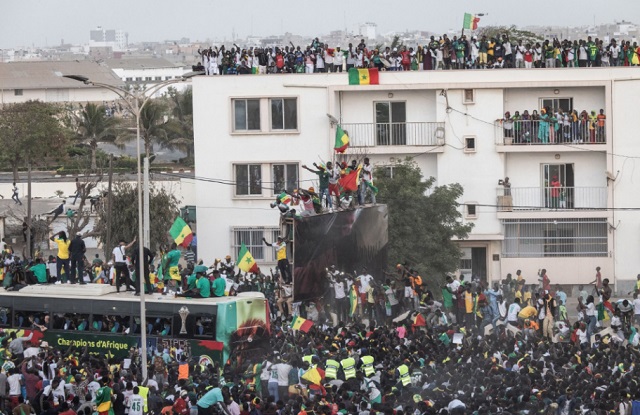
Opens a new chapter for African football
| CHUKA ONWUMECHILI | As the whistle blew on the final match, it was clear that this year’s edition of the Africa Cup of Nations (Afcon) has gone a long way to define a new chapter for the tournament, establishing it on the world football map.
Not only has it successfully resisted pressure from European clubs who were reluctant to release African players, but the competition provided memorable moments for a global audience. And it culminated in a dream final between Senegal and Egypt, led by two of the world’s finest footballers – Sadio Mané and Mohamed Salah.
Africa insisted that its Afcon competition must be respected, especially by European clubs. This was a major focus when this year’s event started in Cameroon.
The first edition, established in 1957 in Khartoum, Sudan, started as a minor tournament in world football. The 34th edition in Cameroon attracted some of the best footballers in the world including Mané (Senegal), Salah (Egypt) and Wilfried Zaha (Ivory Coast) and was televised in 150 countries all over the world. This is thanks, in part, to the growing international status of Africa’s star players.
Europe’s displeasure
At the beginning of this year’s edition, however, European clubs voiced their displeasure at the prospect of losing valuable players to African national teams taking part in Afcon. This was initially couched as concerns over the spread of COVID-19. Yet league games in Europe, where the impact of the pandemic was rife, were continuing. Moreover, the Confederation for African Football (CAF) introduced measures to protect participants and fans during the competition.
After delays, Afcon 2021 was eventually scheduled for early 2022. European clubs were now concerned that the competition takes place during the European football season. They would lose the services of some of their African players. The English Premier League alone stood to lose 37 players. Liverpool, amid a race to win the English Premier League title, lost Mané and Salah as well as Naby Keita (Guinea), Arsenal lost Pierre-Emerick Aubameyang (Gabon); Crystal Palace lost Zaha; Leicester lost Wilfred Ndidi and Kelechi Iheanacho (Nigeria) and so forth.
Liverpool manager Jürgen Klopp decried losing some of his key players to Afcon, which he described as a “little” tournament. However, Klopp’s concerns appear to have been misplaced. Liverpool was still in second place in the league by the beginning of February 2022. They had not lost ground. On the upside, Liverpool’s stars –- Mané and Salah – brought attention to the English club as they led their countries to an Afcon final broadcast to a worldwide audience. Of course, for many European clubs, some in perilous positions in domestic league competitions, a loss of a player could mean a plunge on the league table.
Africa’s resistance
Nonetheless, African teams demanded access to the players, noting that January is a month reserved for international tournaments by FIFA. Many countries reacted angrily to clubs refusing to release players for Afcon.
The reluctance by European clubs to release their African players for Afcon and the insistence by African countries to have those players represent them is a long-running struggle. However, CAF resisted Europe’s pressure more forcefully than ever. It issued a statement that the dates were set in stone and that the decision to stage Afcon in January and February was “alpha and omega”. The tournament was not going to be moved in spite of Europe’s pressure and rumours.
Several former players, including Ian Wright and Patrick Vieira, voiced their support for the Afcon tournament and urged that it should be respected. Then current players and managers also chimed in with their support. Patrick Vieira who manages Crystal Palace, affected by loss of players to the Afcon, said: “Maybe journalists here (in Europe) should go to Africa and cover it and then they will know what it means to the people in Africa.”
He has a football academy in Senegal and is familiar with the importance of the competition for Africans.
That support from the likes of Vieira and notable former internationals further defined a new chapter for Afcon in its quest to become a major tournament worldwide and to earn global respect.
Winning Afcon for the first time was such a big deal for Senegal that the country’s president Macky Sall declared the day after the final a public holiday. As large crowds descended on the streets of Dakar to celebrate a breakthrough win, it wasn’t just Senegal who was celebrating the latest edition of Afcon. It was also Afcon organisers, officials, players and fans – across the world.
****
Chuka Onwumechili is Professor of Communications, Howard University
Source:theconversation
 The Independent Uganda: You get the Truth we Pay the Price
The Independent Uganda: You get the Truth we Pay the Price



